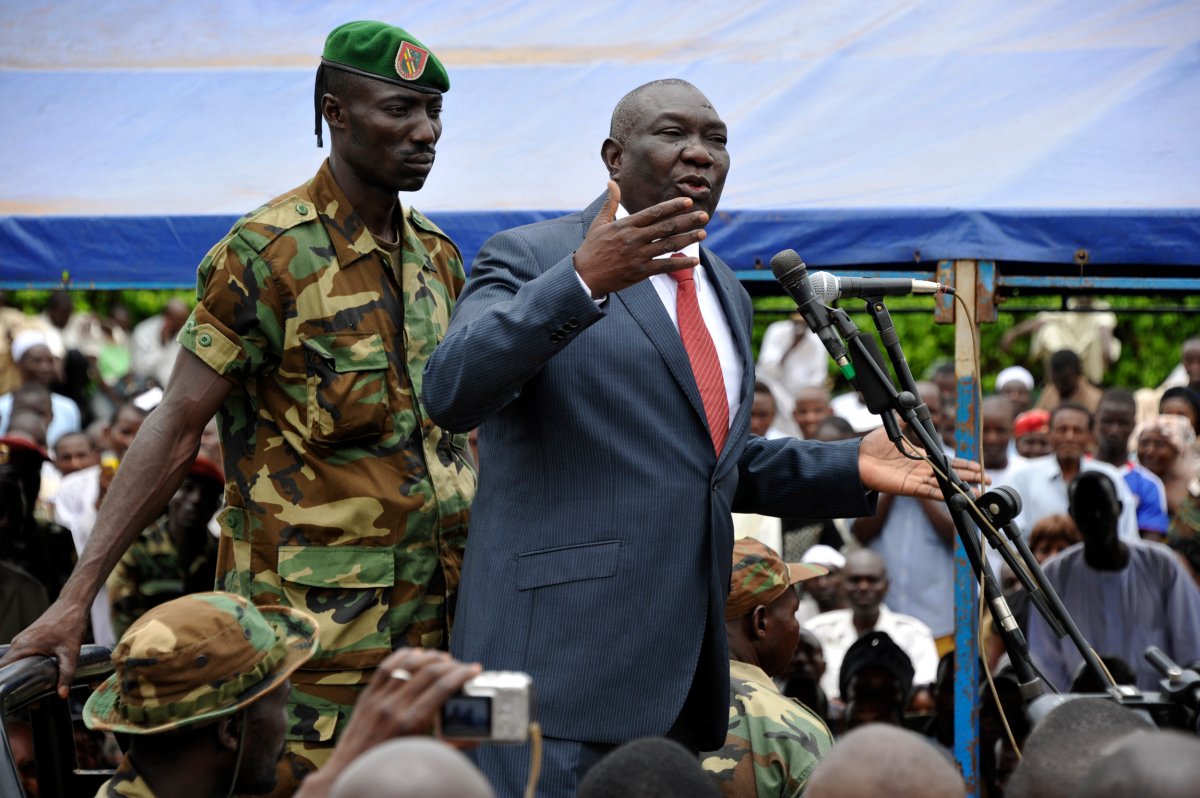BANGUI – Central African Republic’s coup leader solidified his hold on the government Monday after announcing that he will serve as both president and defence minister, while other top posts are going to his fellow rebels.

Michel Djotodia, who led the thousands of rebel fighters who overthrew longtime President Francois Bozize just over a week ago, made the announcement in a decree read late Sunday on state radio.
Not only will Djotodia hold the defence ministry, but his allies also will control the ministries of mines, commerce, communication, and security and public order, according to a decree issued on letterhead that reads “presidency of the republic.”
Opposition leader Nicolas Tiangaye remains as prime minister in the new government.
Alex Vines, head of the Africa program at Chatham House, a London-based institute on international affairs, has described the coup as being about “blind ambition” despite the rebels’ claims they are seeking greater assistance for their homeland in the deeply impoverished northeast. The rebel alliance that overthrew the government is known as Seleka.
“All the accounts of Seleka are that they have no development vision for CAR. It’s exclusively about redistribution of patrimony from having captured the state,” Vines said.
“There is so little other activity – capturing the state is sort of the main source of revenue,” he said.
Thousands of Djotodia’s rebels are now residing in the capital, and could be seen Monday riding on pickup trucks that were sponge-painted brown and black in a kind of homemade camouflage with “Seleka” scrawled across the sides.
Others camped out on cots in and around the state-run radio building, and some sat beside a drained swimming pool at the luxury hotel that Djotodia has transformed into his presidential palace.
The rebels are identifiable by the head turbans they wear, though others have taken to wearing clothes they took from the Central African army soldiers who fled in the face of the rebel advance and adorning them with a yellow ribbon on the shoulder.
Djotodia, who first rose to prominence as a rebel leader back in 2006, already had served as defence minister since the formation of an ill-fated national unity government in January.
That agreement had been backed by regional mediators trying to avert a crisis in the country long wracked by coups and rebellions, and was to allow Bozize to remain in office until 2016.
However, the rebels soon accused Bozize of failing to deliver on his promises and ousted him during fierce fighting that also left 13 South African soldiers dead.
Bozize and his family have taken refuge in neighbouring Cameroon and are now seeking exile in the tiny West African nation of Benin.
The African Union has suspended Central African Republic’s membership, and the United States has urged the country to swiftly organize new elections.
“We also condemn Seleka’s unlawful designation of a head of state or any other unilateral decisions involving the future governance of the country,” U.S. State Department spokeswoman Victoria Nuland said in a statement issued over the weekend. “The only legitimate government in the CAR is the government of national unity led by Prime Minister Nicolas Tiangaye.”
In South Africa on Monday, the opposition Democratic Alliance party called for President Jacob Zuma to withdraw troops from Central African Republic. And a South African soldiers’ union called for Zuma to report Djotodia to the International Criminal Court for allegedly using child soldiers.
South Africa is increasingly embroiled in debate over why its troops were deployed to Central African Republic. There are allegations the soldiers were sent to protect mining interests of South Africa’s governing African National Congress. The ANC denies it has any business in the country rich in diamonds, uranium and gold.
Some have suggested that Zuma should be impeached for allegedly misleading parliament about the foreign military mission. Zuma has said they were training the Central African Republic soldiers.



Comments